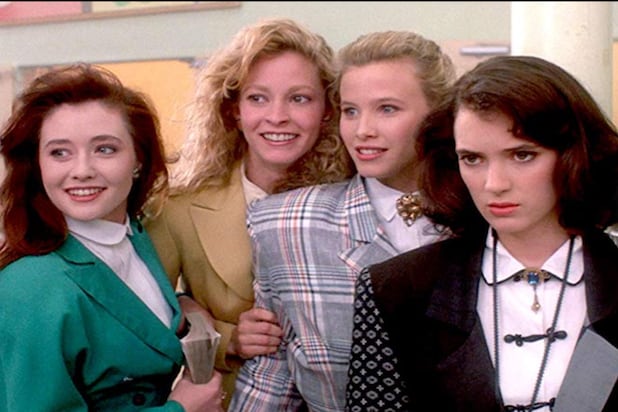Cult films create families of fans
May 10, 2021
I have always been enamored with the category of so-called “cult films.” As an avid movie-watcher, I’ve always thought that an entire group of people obsessed with an overlooked film sounded so niche that I just had to look more into it. The more I thought about it though, the more the question started to appear in my head: what makes a cult film a cult film? The label seems to be tossed around so much that it’s hard to decide what aspects qualify a movie as one. However, after doing research into the niche category of cult films, I’ve put together what I believe makes a cult film a cult film—and the more I’ve researched, the more I realize how much we need them.
So how do you define a “cult film”? According to the definition posted on Wikipedia, a cult film is defined as a film that develops a “cult following”; typically these cult films are either films that didn’t perform well financially (and sometimes critically), films that were swept under the radar for not being high budget, or sometimes a mix of all of these. I would have to agree with this definition; it definitely seems to encompass the main idea, and I couldn’t have worded it better. So the definition was easy, but then what makes a cult film a cult film? Wouldn’t every non-successful indie film become a cult film by definition? What draws certain audiences to grow obsessed over certain films?
Not every film can become a cult film just because it’s indie or because it bombed; if that was the case, these wouldn’t really be called “cult films,” because there would be so many of them! To get to this, we need to start with the basics of cult films. One of the most famous examples that probably comes to people’s minds when they hear about cult films is “The Rocky Horror Picture Show.” By now, the film is pretty much known to everyone and not just a certain group, but it wasn’t always like this. When “Rocky Horror” was released in 1975, it was considered to be a financial flop. According to an article on www.bbc.com, many critics weren’t massive fans either, although it wasn’t trashed to the level that people think it was. They quote Larry Viezel, the president of The Rocky Horror Picture Show Official Fan Club, who said that “For a lot of people, Rocky Horror is like their home…I know a lot of people whose lives were saved by this movie. Especially for those in the LGBT community, it’s a place where they could be themselves and find people who were their family.”
Essentially, it was the LGBTQ+ community who elevated the film to cult level, according to the article. The film features characters who don’t fit into the traditional mold of film characters at the time; one of the main characters is labeled as a “transvestite,” which definitely wouldn’t have been something common to see in other movies back then. That got me looking into other cult films, and wondering what made those ones labeled as such. The film “Heathers” has been considered a cult film for years since it gained resurgence in 1996. Like “Rocky Horror,” “Heathers” was considered a financial flop when it was released in 1989, making back only $1.1 million from its $3 million budget. In another comparison to the aforementioned film, the critical reception was also slightly mixed, partly due to the genre-mixing that the film is now known for.
As I said before, the movie grew into a cult film after its re-release in the late 90s, and grew popular among teenagers. With the creation of “Heathers: The Musical,” the film has grown a larger cult following as the years have followed. While it may not be at the same level as “Rocky Horror” (though few things are), it still holds its ground as a cult film with a devoted following.
Looking at different examples of cult films leads me to reach a hypothesis about them; I asked the question at the beginning, what distinguishes a cult film from a regular, forgotten flop? I believe it’s the audience. While there may be fans of those forgotten failures that don’t ever reach stardom, it’s the families that are created from the cult films that distinguishes them from the rest. I mentioned as well that we need cult films now more than ever, why is that so?
Over the last decade or two, films have mainly pandered to a wider audience as opposed to certain groups. That’s not to say that every film is like that; there are still those that are considered subversive and cater to a specific demographic. A “New York Times” article from February of this year talks about the shift in Amazon’s film division. They went from supporting artistic indie films to guaranteed commercial successes like “Borat: Subsequent Movie Film.” This need to pander to commercialism is also seen with the vast number of sequels and remakes this last decade. It has started to seem more like Hollywood has been running short of ideas.
We need these cult films for two main reasons: One, they give smaller groups, whether marginalized or grouped people with the same niche, something to relate to. And two, they provide a sense of creativity that has seemed to fade in the coming years. These films give hope and inspiration to those who adore them, and even if they aren’t financial successes they could become so in the future due to their followings. Even if this weren’t to happen, it would at least give directors an outlet for the films they’ve always wanted to create. It is possible that more cult films are bound to pop up this decade, though only time will tell.

